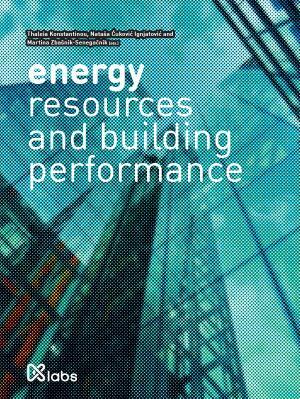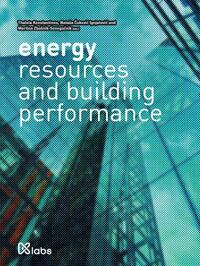19.95
Op werkdagen voor 16:00 uur besteld, volgende dag thuisbezorgd.
Today, humankind is completely dependent on energy. Energy is indispensable for growth and life on Earth, and it is also of key importance for living comfortably – for heating, lighting, cooling, ventilation, operation of machines and appliances, for transport, etc. The major energy-generating source is the sun, sending the energy to Earth and making life on our planet possible. This energy is free of charge and without negative effects. However, we only know how to use and convert a small part of the solar energy reaching the Earth into other forms of energy necessary to improve the conditions for life and the human comfort. The production of energy that drives our civilisation still depends heavily on the use of non-renewable fossil reserves. The dependence on coal, oil, and natural gas is a major problem faced by the humankind. Buildings need energy throughout their life cycle, which consists of six stages – extraction of raw materials, production of materials and components, transport sale, construction, operation and, finally, demolition. Measures aimed at reducing the dependence of a building on energy throughout its life cycle may be implemented on at least two levels. The first important decision is to locate a building in the environment in a manner such that it will help improve the living conditions in the building by making use of the natural features of the site: by proper orientation of the building to facilitate heating and lighting by means of solar energy; by using the wind to facilitate natural ventilation; by including vegetation in the external and internal environment to improve the quality of air; and by observing the relevant distance from the adjacent buildings to prevent the shading effect. The second important decision in the building design process refers to the selection of materials and building technology. Every stage of the building’s lifecycle calls for a choice that will contribute to the lower energy consumption of the building: extraction of raw materials – choice of raw materials (timber, stone, earth), as they are not energy-intensive; production of materials and components – choice of materials whose production requires little energy; sale of materials and components – choice of materials and components that are produced locally near the construction site and not subject to great transport distances; construction of the building – choice of building technologies that do not require much energy; use or operation of the building – the building should be designed in such a manner as to require little energy for heating, cooling, lighting, and ventilation; demolition – the building should be designed in a manner that permits the structure to be disassembled into the basic elements that can be sorted by specific materials and, if possible, reused or recycled. The use of energy in buildings is thus a complex problem, but it can be reduced and alleviated by making appropriate decisions. Therefore, architects face a major and responsible task of designing the built environment in such a way that its energy dependence will be reduced to a minimum, while at the same time being able to provide comfortable living conditions. Today, architects have many tools at their disposal, facilitating the design process and simultaneously ensuring proper assessment in the early stages of building design. The purpose of this book is to present ongoing research from the universities involved in the project Creating the Network of Knowledge Labs for Sustainable and Resilient Environments (KLABS). This book attempts to highlight the problem of energy use in buildings and propose certain solutions. It consists of nine chapters, organised in three parts. The gathering of chapters into parts serves to identify the different themes that the designer needs to consider, namely energy resources, energy use and comfort, and energy efficiency. Part 1, entitled “Sustainable and Resilient Energy Resourc

